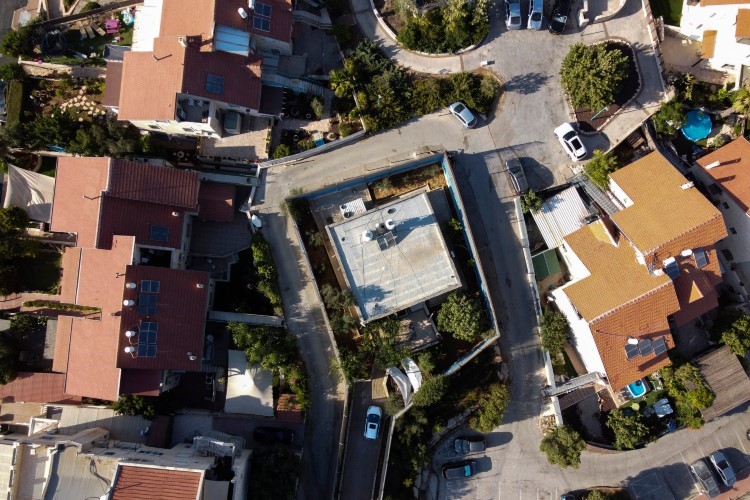BEIT IJZA, Palestinian Territories — An 8m high metal fence surrounds the Gharib
family home in the occupied
West Bank. To reach it they must pass through a
gate remotely controlled by Israeli occupation forces.
اضافة اعلان
Since Israel
seized the territory in the 1967 Arab-Israeli War, an illegal Jewish settlement
has sprung up on surrounding land claimed by the family leaving them isolated
in their single-story house on the edge of the Palestinian village of Beit
Ijza.
“I don’t know when
this will end,” sighed Sa’adat Gharib. “No one knows the pain my children are
suffering.”
For years the
family home stood amid swathes of farmland, but now it lies behind a yellow
gate, controlled by Israeli forces, who also patrol a narrow bridge overlooking
the 8m fence.
“During these
years we’ve had a tough life,” said Gharib, 40, who works for the
Palestinian Authority in nearby Ramallah.
When he was a
child, the illegal Jewish settlement of Givon Hahadasha was built partially on
land he says belonged to his family.
Decades on, the
high fence separates the Gharib house from the Israelis’ red-roofed homes and
gardens. A communal space for the settlers, with a children’s slide, has been
placed a few meters away.
Settlements are
deemed illegal by most of the international community.
 This aerial view shows the house of the Gharib family (center) surrounded by barriers erected by the Israeli occupation forces in the illegal Jewish settlement of Givon Hahadasha north of Jerusalem, bordering the West Bank Palestinian village of Beit Ijza, on July 19 2022.
This aerial view shows the house of the Gharib family (center) surrounded by barriers erected by the Israeli occupation forces in the illegal Jewish settlement of Givon Hahadasha north of Jerusalem, bordering the West Bank Palestinian village of Beit Ijza, on July 19 2022.
The Gharib family
has fought numerous legal battles in Israeli courts, in 2012 winning the right
to a small strip of the land they claim.
“The settlers
built a parking lot and a park, and we’ve needed the security forces to
implement (the decision) and retrieve it for 10 years,” said Gharib.
The yellow gate
leading to the house was installed back in 2008, Gharib said, and at one point
the family had to hold up their IDs to security cameras to cross the threshold.
“(We) appealed to
the high court ... and the court permitted us to have the gate open all the
time,” Gharib said.
“Disputes have
broken out between us and the settlers,” said Gharib, who lives with his wife
and four children, as well as his mother.
Gharib has hung
blue tarpaulins to create a screen between his home and the Givon Hahadasha
settlement. “So that the kids can play without being bothered by the settlers
and fearing them,” he explained.
Gharib said the
situation has affected his children, particularly when there are clashes
between
Palestinians and Israeli occupation forces nearby.
“My daughter
couldn’t sleep all night, for five hours, and she was afraid of the security
forces that were stationed at the door of the house,” said Gharib, recalling
one incident.
Despite the
difficulties, he still strives to harvest the family’s olive trees.
To do so, he said
he has to coordinate with the Israeli forces and take a circuitous route
through the neighboring Palestinian village of Bayt Duqu. Once there, Gharib
said he must wait “an hour or two” for soldiers to open another gate.
Gharib remains
determined to stay on his land: “This is our land which my father inherited
from my grandfather. We will not sell it to anyone for all the money in the
world.”
Read more Region and World
Jordan News





